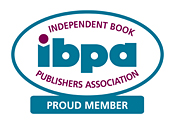Consider a clear, still mountain pool. Beautiful, isnt it? A disturbance – maybe a passing automobile – causes a rock to slide down the mountain side, hit a ledge and bounce into the water. Immediately, there are easily discernible ripples from the point of impact.
Now visualize that the pool has several waterfalls at one end. Each splashes down into the pool, creating its own area of turbulence. This time, a much larger rock slides down the mountain and bounces into the pool. If it lands too far away from the falls, there may be no impact on the patterns they cause. If it lands too close, any effect it has may be totally obscured by the already agitated water. In order to see any disturbance caused by the rock, it would have to be sufficiently large and land far enough away from the waterfalls that the resulting undulations ripple out to meet and temporarily confuse the existing ones.
The splash caused by the rock crests and eventually disappears; leaving the pool in it’s original – or a new – state. If one is too close to the rock however, all that can be seen is the disruption – without any knowledge of the waterfalls as a contributing source. One last thing I’ll ask – imagine the pool and it’s waterfalls as the world of my characters as revealed in the prologue, and the rock as the inciting incident.
I know, I know – you’re right. Prologues are typically the kiss of death. But still, I have to keep it. Not from bull-headed obstinacy (lunacy?), but because I really believe it fits the story; showing readers that the characters are already pursuing various goals and intrigues in the ten months leading up to the ten days during which the story takes place. Interesting that the story started off to be only seven days. But while I was setting up for revision, it became clear that there weren’t enough hours in each day for all the events – even though I’d left out events for Sunday afternoon.
But back to the prologue – outlining the story and blocking out its scenes have given me a solid indication of what the pacing is supposed to be. The already complex world of the characters is thrown off-kilter by the inciting incident of the action plot; which happens in the first sentence of the first chapter. The characters all scramble to regain control of their world and maintain their previous pursuits. There’s precious little time for scene setting and exposition. It’s important that readers already have enough backstory in which to visualize the snippets that can be supported during the acceleration to the climaxes of both plots.
For the attorneys among us, I do have precedent. The romantic suspense genre is one which accepts prologues as an intrinsic part of the novel. Anti-prologue purists may say that I should just call it the first chapter. It’s hard to explain – especially when I’m the only one to have read it yet – but the prologue reads like, well, a prologue; not a first chapter.
Though it’s not at all about Eve, writing this novel has been a fasten your seatbelts kind of a ride. Who said an author’s life is dull?
#ROW80 update, 05/29/2011:
- Goal 1: Now rewriting chapter 5. Chapter 4 took two weeks because it was basically just glossed over – no depth.
- Goal 2: After all the distractions of school end activities, back to my three hours per day average.
- Goal 3 – Haven’t missed a post!
Now it’s time to bid you adieu. It’s not the end of the round, just the end of my participation. Kait Nolan has put together a great group and I was happy to be a part of it for a while. I’ve found rewriting claims so much of my time and energy, that I need to cut everything else back except my blog. I’ve met good online friends whose blogs I now follow, so I’ll be keeping up with you. Have a wonderful summer!
——————————————————————-



I don’t think prologues are bad. I just think they have to contribute to the work. I’m sure others feel the same. Good luck with it.
See you around the blogOsphere.
Good luck with your writing. Understand completely the need to concentrate only on that.
I believe prologues can work in some novels. If you feel your novel need a prologue, then it need a prologue. 🙂
Happy summer, and good luck with your goals!
Thanks for your support regarding prologues and concentrating on my writing. I’ll still be on Twitter and blogging every week!
Rewriting can definitely zap your energy. Good luck, hope it goes smoothly! And, if you need us, just yell, “RoW80!!!” 🙂
Thank you Katen! I will certainly do that.
I have read some books with prologues and I don’t think they hurt the story at all. In fact, if the above is part of your prologue, I really enjoyed the visualization.
Good luck with your writing goals and have a great summer.
Thanks Linda for stopping by. Best of luck to you as well, and continued progress on ROW80
I think prologues work when they are necessary to the story, but not as a means to avoid having to work the info into the story itself. If your story needs it, than it’ll work just fine. 😀
Prologues aren’t bad, they’ve just gotten a bum rap due to misuse, sorta like adverbs.
Good luck with your rewrites.
Thanks for visiting and your comment, Cheryl Anne. That’s my feeling too – about the bum rap. I think it works & hope others do too.